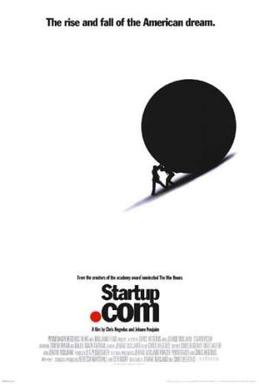January 18th, 2015 § Comments Off on Updated Breakdown of Slovenian Budget § permalink
Years ago I did an exercise in reading and presenting a dataset as complex as a national budget. Back in 2012, this included learning a lot, as well as a lot of arm-wrestling with strange PDF’s.
Right after that, our government started publishing the budget in machine-readable formats, so now I could update the page with three more years of data in an hour. Yay for open data!
So anyways, the 2015 Slovenian budget is available in human-readable form, thanks to machine-readable export of accountants-readable original.
It’s still ugly, so take it as a mockup, and send me your ideas for how you wish the budget would be presented.
January 4th, 2014 § Comments Off on If you want to understand the life of a startup entrepreneur, watch this video § permalink


New York (Photo credits: www.roadtrafficsigns.com)
The author is Terrence Kawaja, an investment banker in NY, who knows everyone and in spare time creates more or less funny spoofs of popular culture.
This is his latest video, which is essentially a rewording of the famous ‘sunscreen’ song. I find it incredibly accurate, chaotic and sincere description of everyday life of a startup entrepreneur.
aspiring entrepreneurs, angel investors, employees, their families, everyone should understand the ups and downs that we go trough, and this video de-mystifies it appropriately.
September 3rd, 2012 § Comments Off on cynical reblog: Celebrating Women Entrepreneurs! § permalink

i whole-heartedly agree that this particular gender inequality should be fixed in the future, but are all women really so fond of wearing knee-long dresses that they can be the only representative of the ‘business dress’ ?
 This weekend, we celebrate women entrepreneurs for all their hard work! By Angie Chang (Co-Founder & Editor-in-Chief, Women 2.0) In the past 15 years, women-owned businesses grew by 54% – there are more women entrepreneurs than ever. The 8.3 million women-owned businesses in the United States account for nearly 30% of U.S. businesses!
This weekend, we celebrate women entrepreneurs for all their hard work! By Angie Chang (Co-Founder & Editor-in-Chief, Women 2.0) In the past 15 years, women-owned businesses grew by 54% – there are more women entrepreneurs than ever. The 8.3 million women-owned businesses in the United States account for nearly 30% of U.S. businesses!
via: www.women2.com
August 22nd, 2012 § § permalink


Startup.com (Photo credit: Wikipedia)
I’m sure most of you think you agree with this statement, but I bet you are making tons of inefficient decisions because you are trained to expect certain things from your ‘work environment’ aka Job.
But the startup really isn’t a job. To build a startup you don’t need an office, until you actually know why you do – for instance after you have several non-founding team members.
And you most probably don’t need those employees, until you actually know to the hour what they need to do so the founders can build the startup.
And you don’t need vacation, because you don’t have a job. You might need time to think about the pivot, but that’s not vacation. You might need to rest your brain, but don’t expect you will actually unplug. Your entrepreneurial brain can’t unplug. You don’t need time off. If you think you do, you’re in a Job and should stop thinking it’s a startup, because it will fail.
Startup is not a job, it’s just you wanting to achieve a change in the world / other people’s behavior, not taking no for an answer, because you don’t know how to stop, and constantly thinking about a shortcut to the next obstacle on the way. Startup is just a group of people and technologies arranged around the founders that represent the currently shortest way to change the behavior of others. It is the founders passion, and in that it’s similar to works of art – you can’t help yourself but make it work.
Everything else is secondary. Specially (fancy) office space, (expensive) employees and (long) holidays.
June 1st, 2012 § § permalink


Ólafur_Ragnar_Grímsson (Photo credit: Wikipedia)
Business Insider has a great interview with Ólafur Ragnar Grímsson, who has been President of Iceland since 1996, and announced last month he would be running for a fifth term.
It is an incredible read, because he is obviously very smart and very ethical person, a rare gift for politician these days. I wish everyone in Slovenia read this and adjust their expectations on how a public leader should behave, react, lead. He makes several super-insightful points, that clearly come from a lot of experience and thought.
For instance, about the importance of the banking sector:
As everybody knows now, we did not pump public money into the failed banks. We treated them like private companies that went bankrupt, and we let them fail. Some people say we did it because we didn’t have any other option, there is clearly something in that argument, but it does not change the fact that it turned out to be a wise move or whatever reason. Whereas in many other countries, the prevailing orthodoxy is you pump public money into banks and you make taxpayers responsible for the banks in the long run, and somehow treat the banks as if they are holier institutions in the economy than manufacturing companies, commercial companies, IT companies, or whatever.
…
Capitalistic financial markets can exist in many other parts of the world, even without democracy. So in my opinion, Europe is and should be more about democracy than about financial markets. Based with this choice, it was in the end, clear that I had to choose democracy.
… and one positive story on journalism – i wish more media aspired to be this fair when they are judgmental:
One has to hand it to the editorial board of The Financial Times and The Wall Street Journal, that they supported Iceland’s case all along. And if The Financial Times and The Wall Street Journal, who have never been special friends of Iceland, saw through this argument by the British and the Dutch government, why on earth didn’t the other European governments do so?
… and a match point for creative industries (which includes startups btw):
the Icelandic banks, like all modern big banks in Europe and America and all the other parts of the world, are no longer banks in the old-fashioned way. They have become high-tech companies. High-ranked engineers, mathematicians, computer scientists, programmers and so on and so forth. And their success depends largely on how successful they are in hiring people with this education and capability, not necessarily those trained in business schools or finance, but in engineering, mathematics, computer science and so on.
…
So the lesson from this is: if you want your economy to excel in the 21st century, for the IT, information-based high-tech sectors, a big banking sector, even a very successful banking system, is bad news for your economy.
… about the inherent problem of all ‘ecosystems’ – clubbing
And I said to myself — I know it’s a mistake now — in early 2007, if all the credit agencies are giving the Icelandic banks a clean bill of health, these pillars of European banking are doing integral business with the Icelandic banks, these critical voices are not really onto what’s happening.
… and an example of true collaboration, going on without the media really noticing it…
Fortunately, during this time when there was very little attention to the Arctic, the eight Arctic countries were able peacefully, almost off the radar, to develop co-operation within the Arctic Council, and to consolidate the peaceful and constructive dialogue among Russia, the United States, Canada, and the five Nordic countries.
Read more: http://www.businessinsider.com/olafur-ragnur-grimsson-iceland-2012-4
May 26th, 2012 § Comments Off on White House taps private sector to help feed world’s hungry § permalink

 White House taps private sector to help feed world’s hungry By Christopher Doering, Gannett Comments WASHINGTON – President Obama vowed Friday to accelerate efforts to relieve hunger and malnutrition in Africa and unveiled as part of his plan a $3 billion commitment from multinational companies to make it easier for small farmers to grow their…
White House taps private sector to help feed world’s hungry By Christopher Doering, Gannett Comments WASHINGTON – President Obama vowed Friday to accelerate efforts to relieve hunger and malnutrition in Africa and unveiled as part of his plan a $3 billion commitment from multinational companies to make it easier for small farmers to grow their…
via: www.usatoday.com
this is a hard topic. here’s why:
- they are trying to raise $3B, which is arguably a lot of money. however…
- semi-random college startup just IPO‘d at $104B market cap, Apple has $10B cash reserves, Microsoft $10B cash reserves …
- also, USA yearly defense budget is over $500B, the new fancy UK aircraft carrier will cost $12B, war in Afganistan cost $500B so far.
- … and in the end, the hard problem is not cash to buy food, but how to actually distribute it in the end. if they have a good plan for that, the cash should be easier to find.
April 14th, 2012 § § permalink


Pop singer Michael Jackson at the White House ceremony to launch the campaign against drunk driving. (Photo credit: Wikipedia)
networking is not about dressing up, mingling with famous people, drinking cocktails or beer or anything else, it’s not about increasing your visibility or clout, or about checking in with other people etc…
networking is working, and that’s working on a very specific set of activities, which is completely different from the ones listed before.
- unless it’s a really huge party (1000 people, several floors etc.), introduce yourself to the host. it’s the only way you can make sure you’ll be invited next time.
- do your homework! who will be there? what’s their background? do you have any thoughts for them? how are your worlds connected? why would they want to talk to you? or why should they talk to you? these questions you should know answers to before you show up, for everyone in the room if possible! every time! you have no right to come up to the guest of honor and asking “so what does your company do?” you’re wasting time for everyone else in the room! and don’t you dare ask that question at the public session, because the other person has no gracious way to get out of it without wasting everybody’s time.
- don’t small talk! or do so only in the first 10 seconds of each conversation, to break the ice and show your language skills are sufficient. nobody goes to networking events to hear more about the weather, food, drinks, politics or your personal life. don’t waste the time and energy i’m trying to spend in your favor by talking to you!
- you don’t have to talk to everyone in the room, but try sticking around long enough, to talk to at least one person. you have to buy the ticket to win the lottery. and after you do, follow up!
- don’t read these points and nod your head and think ‘what assholes some people are’ – I so know you are doing the same on every event you go to. it’s human condition to be egoistic and we all have to work to overcome it all the time. fuck you, be humble.
- Fascinated By People Who… (allisonnazarian.com)
- Fuck you (teremity.wordpress.com)
March 31st, 2012 § Comments Off on Just the Facts. Yes, All of Them. § permalink


Public speaking (Photo credit: brainpop_uk)
I really like this attitude:
If all data was clear, a lot fewer people would subtract value from the world, he says. A lot more people would add value.
… eventually, everything will be made transparent, and we will demonstrate that people are inherently good. And politics will go back to be what it was supposed to be – the art of the argument and debate, rather than manipulation.
February 21st, 2012 § Comments Off on when cultural differences hit you – smile! § permalink


Silicon Valley Rocks 2011 (Photo credit: thekenyeung)
Lots of people move to US to start their business and are surprised by the obstacles they face in the beginning. I like this advice because it’s straightforward and actionable:
Israelis Tap In to Silicon Valley – WSJ.com
A group of visiting Israeli technology entrepreneurs recently got some blunt advice on how to do business in Silicon Valley. Be positive, smile a lot and don’t bad-mouth a competitor, venture capitalist Itamar Novick told them. When meeting with potential investors, think of it as a wedding proposal, not a transaction.
online.wsj.com
I recently noticed with myself, that I started using exclamation marks in almost every email I send out. the change happened after year 2 of living in US.
it might read as a cliché, when in reality, it merely lowers various expectations. you don’t really have to do much else in the valley than play the game. you need to be determined that this is the game you want to be playing and have humility to accept that you’re a foreigner that has to go humbly trough a process of re-integration into the society.
there is nothing you can do to make this process more controlled, because it’s human nature. smile is a signal that you’re friendly, as people around you start to trust you they’ll share more opportunities with you, and in your second year you will be a different person in a different place.
if you’ll be pushy, they’ll just look away. you can try it the hard way and loose lot’s of energy in vain. smile and have fun is the first rule of this game. you might not like it, but startup entrepreneurship these days is a lifestyle business.
January 28th, 2012 § § permalink
po spletu odmeva ena zanimiva kvintesencialna infografika:
The budget explained in simple English – Mr. Conservative
Something as complicated as the United States debt simplified in a way we can all understand… Lets remove 8 zeros and pretend it’s a household income.
www.mrconservative.com

us budget deficit in simple english
… zanimiva je ker ne poskuÅ¡a biti na silo vizualna, pa je Å¡e vedno izjemno povedna. mislim da rabimo razliÄico za Slovensko realnost…
Nekaj podatkov o Slovenskih javnih financah (2010):
- Prihodki od davkov: € 7.011.901.071
- Drugi dohodki (EU & obresti): € 1.613.100.580
- ProraÄun: € 12.333.046.786
- ProraÄunski primankljaj: € 3.708.045.135
- Dolgovi države: € 3.621.773.371
- PrivarÄevano z intervencijskim zakonom: € 65.000.000
Ce odstranimo 5 niÄel se lahko pretvarjamo da je to družinski proraÄun:
- Leten dohodek družine: € 70.119
- Donacije Älovekoljubnih sosedov: € 16.131
- Denar, ki ga je družina porabila: € 123.305
- Nov minus na kreditni kartici: € 37.080
- ObstojeÄ minus na kreditni kartici: € 36.217
- PrivarÄevano: € 650
ni videti bistvene razlike. oboje je strašljivo.














 This weekend, we celebrate women entrepreneurs for all their hard work! By
This weekend, we celebrate women entrepreneurs for all their hard work! By 





 White House taps private sector to help feed world’s hungry By Christopher Doering, Gannett Comments WASHINGTON –
White House taps private sector to help feed world’s hungry By Christopher Doering, Gannett Comments WASHINGTON – 








